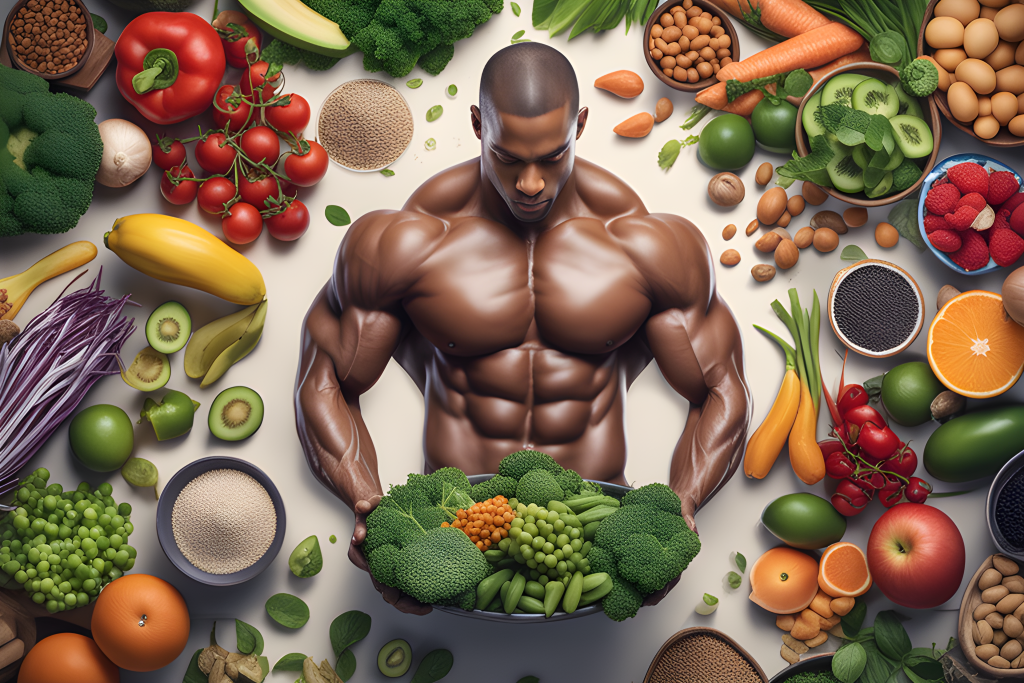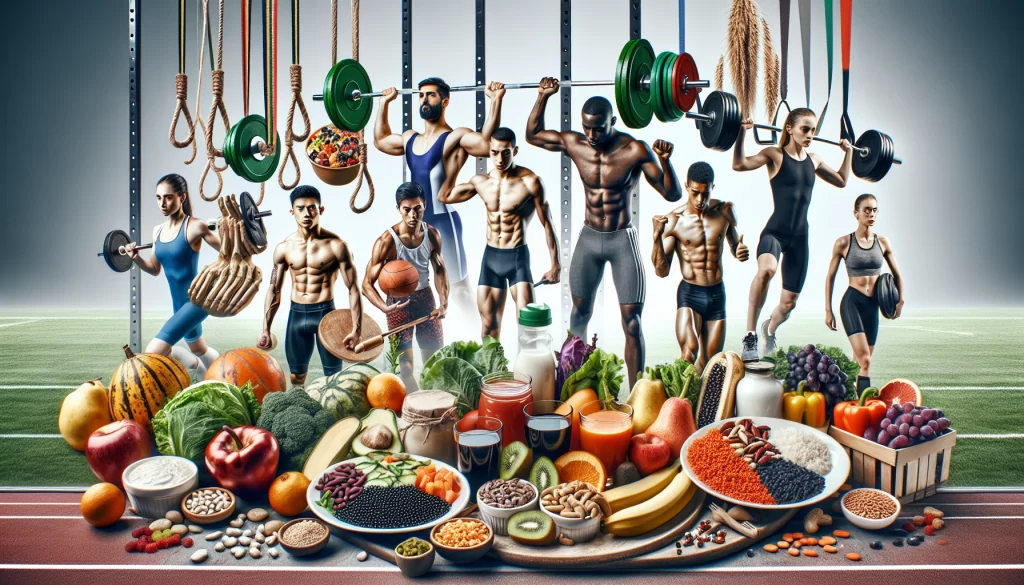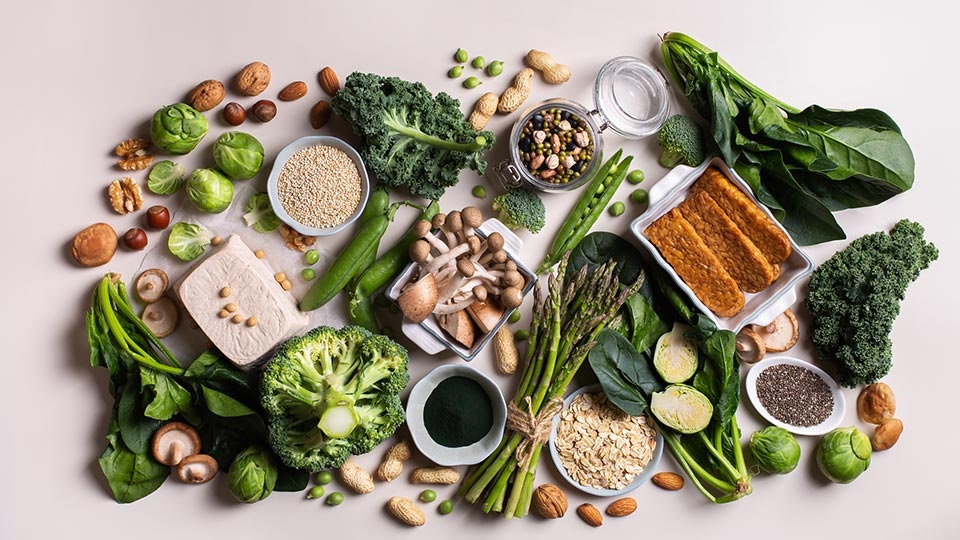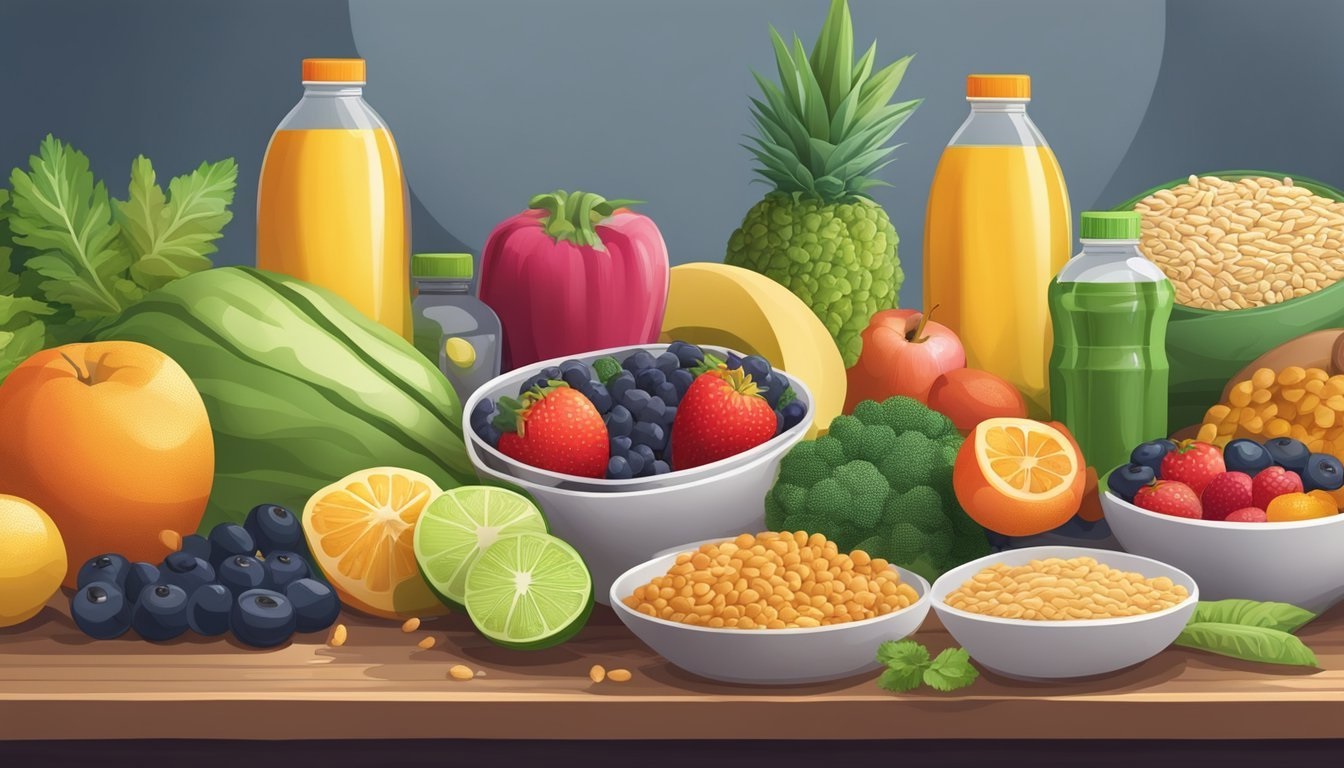Imagine a world where professional athletes fuel their bodies not with protein shakes and steaks, but with a colorful array of plant-based foods. Sounds unbelievable? Well, it’s happening right now.
A growing number of elite athletes are ditching animal products and embracing vegan diets, proving that plants can be the ultimate performance enhancer. From tennis legends like Venus Williams to Formula One champions like Lewis Hamilton, these athletes are shattering stereotypes and rewriting the rulebook on sports nutrition. They’re not just surviving on plants; they’re thriving, crushing records, and inspiring a new generation of athletes to rethink their diets.
But how can a vegan diet possibly provide everything an athlete needs to perform at the highest level? Aren’t athletes supposed to consume massive amounts of protein, preferably from animal sources, to build muscle and recover quickly?
These are valid questions, but the answers might surprise you.

The Rise of a Plant-Powered Movement: Why Athletes Are Choosing Compassion and Sustainability
The reasons why athletes are embracing veganism are as diverse as the athletes themselves. For some, it’s a matter of health. Lactose intolerance, a common condition where the body struggles to digest lactose (the sugar found in milk), affects a significant portion of the population. Plant-based milks offer a delicious and easily digestible alternative.
But health isn’t the only factor. Many athletes are motivated by ethical concerns surrounding animal welfare in the dairy and meat industries. They believe that animals deserve to be treated with compassion and respect, not exploited for food.

The environmental impact of animal agriculture is another major concern. Raising animals for food requires vast amounts of land, water, and feed, and it generates significant greenhouse gas emissions that contribute to climate change. By choosing a plant-based diet, athletes can significantly reduce their environmental footprint.
And then there’s the simple desire for variety and new culinary experiences. The world of plant-based cuisine is exploding with creativity, offering a tantalizing array of flavors and textures that can satisfy even the most discerning palate. Athletes are discovering that plant-based foods can be just as delicious and satisfying as their animal-based counterparts, if not more so.
Dispelling the Myths: Vegan Athletes Get All the Nutrients They Need, and Then Some
One of the biggest misconceptions about vegan diets for athletes is the myth of protein deficiency. However, this couldn’t be further from the truth. Plants are packed with protein – think lentils, chickpeas, tofu, tempeh, quinoa, nuts, and seeds.
A well-planned vegan diet can easily meet an athlete’s protein needs, and often exceed them. In fact, many plant-based proteins are more easily digested than animal proteins, meaning your body can utilize them more efficiently for muscle repair and growth.

But it’s not just about protein. Vegan diets are naturally rich in complex carbohydrates, the body’s preferred fuel source for endurance. These carbs provide sustained energy, allowing athletes to train harder and longer without hitting the dreaded “wall.” Plant-based diets are also loaded with antioxidants, those powerful compounds that help combat inflammation and speed up recovery. Think of antioxidants as your body’s pit crew, working tirelessly to repair the damage done during intense workouts.
Thriving on Plants: Real Athletes, Real Results
The proof of the plant-based pudding is in the incredible achievements of vegan athletes across a wide range of sports. Venus Williams, the tennis legend, has won seven Grand Slam titles on a vegan diet. She credits her plant-based lifestyle for her remarkable longevity and resilience on the court.
Formula One champion Lewis Hamilton, known for his lightning-fast reflexes and unwavering focus, fuels his high-octane races with plants. He believes that his vegan diet gives him a competitive edge, providing him with the energy and endurance he needs to outpace his rivals.
Ultramarathon runner Scott Jurek has shattered records on a vegan diet, proving that plants can provide the sustained energy needed for even the most grueling endurance challenges. He’s completed some of the world’s toughest races, including the Appalachian Trail in a record-breaking 46 days, 8 hours, and 7 minutes, all while fueled by plants.

And in the world of strength sports, powerlifter Kendrick Farris has defied the odds by becoming the first vegan Olympian in his sport. He’s a testament to the fact that you don’t need meat to build muscle and lift heavy weights.
These are just a few examples of the many vegan athletes who are excelling in their respective fields. Their success stories are a powerful testament to the fact that a plant-based diet can not only sustain athletic performance, but enhance it.
Fueling Your Inner Champion: Tips for Vegan Athletes
Ready to embrace the power of plants and unleash your inner vegan athlete? Here are some key tips to ensure you’re getting all the nutrients you need to thrive:
- Build a Balanced Plate: Focus on whole, unprocessed plant foods like fruits, vegetables, legumes, whole grains, nuts, and seeds. Aim for a rainbow of colors on your plate to ensure you’re getting a wide range of vitamins, minerals, and antioxidants.
- Prioritize Protein: Make sure you’re including plenty of plant-based protein sources in each meal and snack. Good options include lentils, chickpeas, tofu, tempeh, quinoa, nuts, seeds, and protein powders derived from plants.
- Mind Your Micros: Pay attention to key nutrients like iron, B12, omega-3 fatty acids, and calcium. Consider incorporating fortified foods or supplements to ensure you’re meeting your daily requirements.
- Hydrate, Hydrate, Hydrate: Water is essential for athletic performance, regardless of your diet. Make sure you’re drinking plenty of fluids throughout the day, especially before, during, and after workouts.
- Don’t Forget Healthy Fats: Include sources of healthy fats in your diet, such as avocados, nuts, seeds, and olive oil. These fats are essential for hormone production, brain function, and overall well-being.
- Consult a Pro: If you’re unsure about how to build a balanced vegan diet for your specific needs and activity level, don’t hesitate to seek guidance from a registered dietitian who specializes in plant-based nutrition.

The Future of Sports: Powered by Plants
The rise of vegan athletes is more than just a passing trend; it’s a paradigm shift in the world of sports nutrition. As more and more athletes embrace plant-based diets, we can expect to see even greater innovation in vegan sports products, training strategies, and performance research. The future of sports is green, and it’s fueled by the power of plants.
So, are you ready to join the plant-powered revolution? Embrace the challenge, experiment with delicious plant-based recipes, and discover the incredible potential of plants to fuel your athletic journey. You might be surprised at what you can achieve when you harness the power of nature.
The plant-based movement is not just about food; it’s about a lifestyle that promotes health, compassion, and sustainability. By choosing plants over animals, you’re not only fueling your own body, you’re also making a positive impact on the world around you.

So, the next time you’re at the grocery store, take a detour down the plant-based aisle. You might just discover your new favorite milk, protein source, or energy bar. And who knows, you might even be inspired to join the growing ranks of vegan athletes who are proving that plants are the ultimate fuel for peak performance.

Hello, I’m Elaria Jackson, the author behind Vegan Castle. I have a background in Nutrition Science and Culinary Arts. I’ve studied the benefits of a plant-based diet and its impact on health and the environment. I’ve attended various vegan cooking courses and workshops. Through Vegan Castle, I share easy weeknight meals and decadent desserts. I aim to be a valuable companion on your vegan journey.
